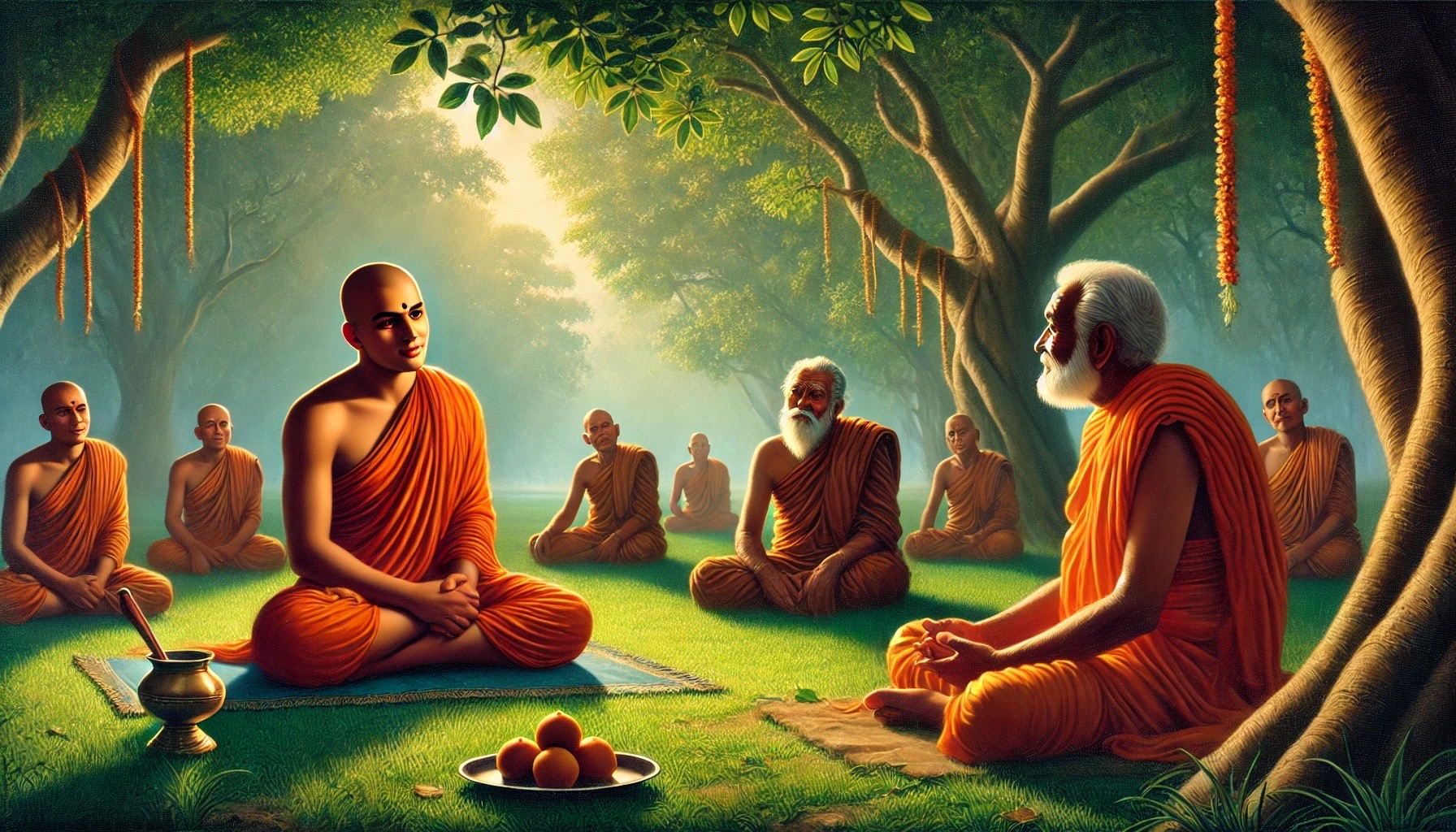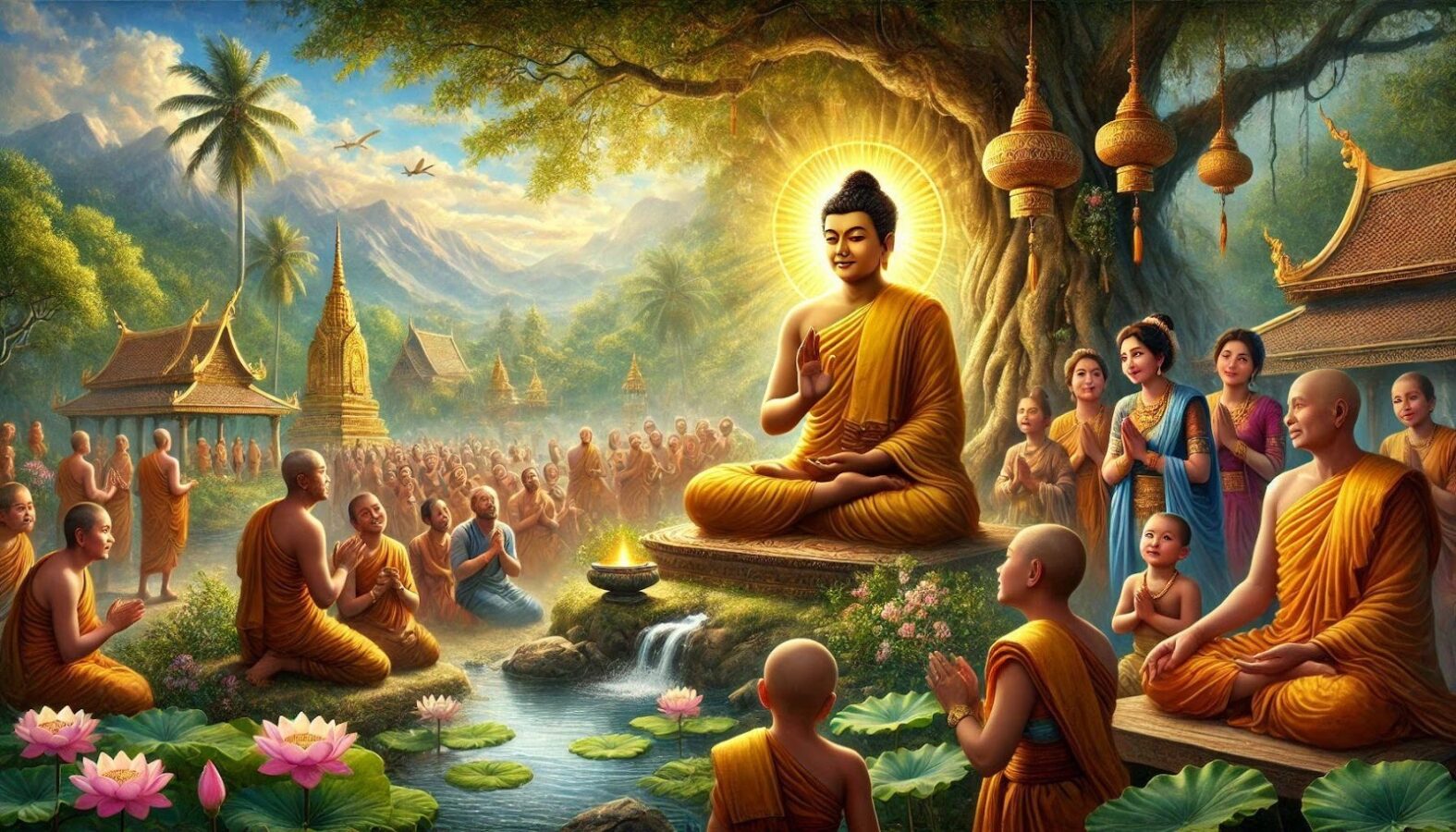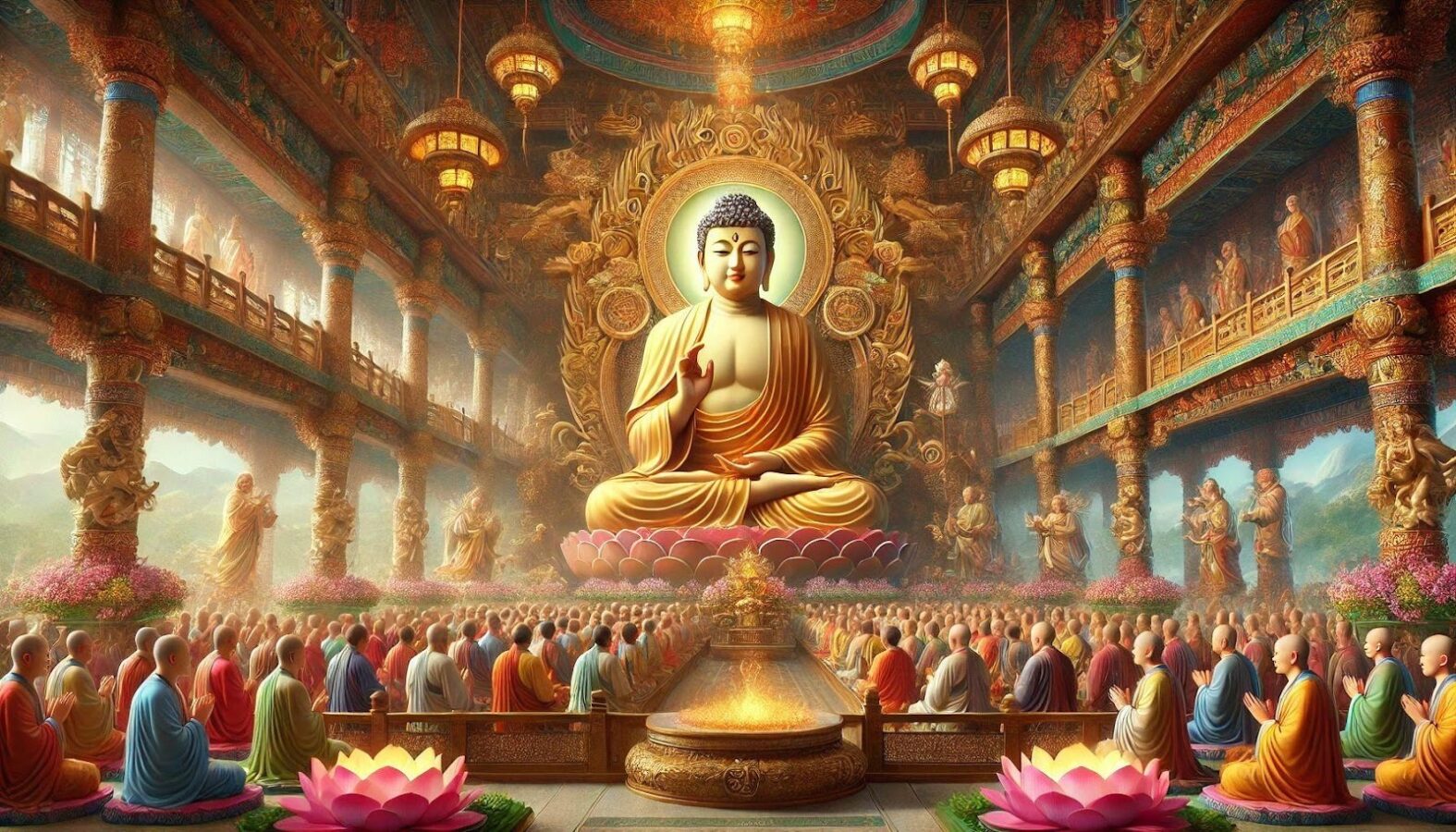
Date: 08/24/2024 08/25/2024
Location: Star Lake Meditation Center
Teacher: Otto Huang
Dharma Talk
The cause of many false views
During the time of the Buddha, in the village of Makacita in the kingdom of Kashi, there lived a wealthy and charitable layperson named Chidoro. He was known for his generosity and often provided for the monastic community, with many monks staying in his grove.
One day, a group of elder monks arrived at the grove, and Chidoro hurried over to invite them to accept his offering of food the next morning.
The following day, the monks arrived, and before offering the food, Chidoro asked the elder monks:
“Venerable elders, why do people have so many different views? Some say the world is eternal and unchanging, while others say it is impermanent; some say the world is finite, while others say it is infinite; some say the self and the body are the same, while others say they are different; some say there is a spirit that continues after death, while others say there is no such spirit; some speak of a true self, while others speak of various true selves of sentient beings; some believe in a deity that governs life, while others believe in a deity that determines fortune and misfortune. What causes these conflicting views?”
Hearing this question, the most senior monk among them did not know how to answer. Even after Chidoro repeated his question three times, the monk remained silent. The other elder monks were also silent, unable to respond.
At this point, a young monk named Risidatta, the least experienced among them, received permission from the senior monk to answer Chidoro’s question. He said:
“Layperson, as long as the view of self exists, these various false views will arise. If the view of self does not exist, these false views will not arise.”
“But, venerable one, what is this view of self?” Chidoro continued to ask.
“Layperson, ordinary people who have not met noble ones, who have not heard the true Dharma, and who have not practiced the true Dharma, wrongly believe that the body is the self, or that the body is something they possess, or that the body is within the self, or that the self is within the body. They wrongly believe that feelings are the self, or that perception is the self, or that formations are the self, or that consciousness is the self. Layperson, this is the view of self.”
“Venerable one, how can one be free from the view of self?”
“Layperson, the noble disciples who have heard the true Dharma, who have practiced the true Dharma, do not believe that the body is the self, do not believe that the body is something they possess, do not believe that the body is within the self, and do not believe that the self is within the body. They do not believe that feelings are the self, or that perception is the self, or that formations are the self, or that consciousness is the self. Layperson, this is how one is free from the view of self.”
Chidoro was very satisfied with this answer and became curious about the young monk’s background. He asked:
“Venerable one, where do you come from?”
“Layperson, I come from the country of Avanti.”
“Venerable one, in the past, I had a friend named Risidatta in Avanti. We haven’t seen each other for a long time, and I heard he became a monk. Have you met him?”
“Yes, layperson, I have.”
“Venerable one, where is Risidatta now?”
At this point, Venerable Risidatta remained silent because the Risidatta that Chidoro spoke of was himself.
Chidoro, suspecting that the monk before him was indeed his old friend who had become a monk, asked:
“Venerable one, are you not Venerable Risidatta?”
“Yes, I am that Risidatta.”
“Venerable one, please stay in this grove. Let me provide for your needs such as clothing, food, bedding, and medicine.”
Venerable Risidatta agreed, and Chidoro was very pleased, offering many delicious foods to the monks.
After the meal, on the way back to the grove, the most senior monk said to Venerable Risidatta:
“Well done, friend Risidatta! You answered the question I could not. Therefore, if similar questions arise in the future, you will answer them.”
Later, because of Chidoro’s abundant offerings, Venerable Risidatta became complacent and stopped making efforts, going a long time without visiting the Buddha to hear his teachings.

